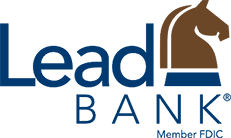8 Best Socially Responsible Banks
NerdWallet's picks include banks, credit unions and neobanks with third-party certifications and strong ratings.
Many or all of the products on this page are from partners who compensate us when you click to or take an action on their website, but this does not influence our evaluations or ratings. Our opinions are our own.
When you open an account at a socially responsible bank, your dollars support initiatives to make social and environmental good. As with any bank, money from bank accounts helps fund loans to businesses and home buyers.
More broadly, socially responsible banking institutions include banks, credit unions (as the not-for-profit equivalent) and internet-only banking fintech companies called neobanks. All types can prove their eco-friendly or social justice missions through third-party designations. (And these missions can help address climate change, which can impact our finances over time.) These certifications are among the definitive ways to find a socially responsible bank.
» Learn more about these certifications on our guide to ethical banking
Apart from certifications, NerdWallet analyzed socially responsible institutions based on two other factors:
Can anyone in the United States be eligible to join them, especially online? We chose institutions that our nationwide readership can consider.
How do the banking accounts compare to those at other institutions? We used our traditional methodology to evaluate personal checking, savings and certificates of deposit when available. For more details, scroll down to see the methodology.
Here's our list of eight socially responsible institutions, plus two up-and-comers and regional options.
Aspiration.
Amalgamated Bank.
City First Bank, National Association.
Clean Energy Credit Union.
Decorah Bank & Trust Company.
Greenpenny.
Lead Bank.
Self-Help Credit Union.
8 Best Socially Responsible Banks
Up and coming socially responsible institutions
These institutions are the two newest we considered with promise as they build:
Atmos Financial: Launched in September 2021, this climate-focused neobank focuses on financing clean energy projects with customer deposits. It measures the carbon impact of a customer's deposits and provides cashback checking and high-yield savings accounts. Its B Corp status is pending, and it is Fossil Free Certified.
Climate First Bank: Started in June 2021, this St. Petersburg, Florida-based bank provides checking, savings and clean energy loans for solar panel loans and electric cars. Its B Corp status is pending, and it is Fossil Free Certified and part of 1% for the Planet, among other associations.
More regional institutions
With designations like those above, these socially responsible banking institutions primarily focus on specific geographic areas and don't generally have a nationwide option for eligibility or field of membership. However, if any are in your state, they're worth a look:
Beneficial State Bank (CA, OR, WA).
Brattleboro Savings & Loan (VT).
Clearwater Credit Union (MT).
Civic Federal Credit Union (NC).
Hope Credit Union (AL, AK, LA, MS, TN).*
Southern Bancorp (AR).
Spring Bank (NY).
Verity Credit Union (WA).
VSECU (Vermont State Employees Credit Union) (VT).
See our full list of socially responsible banks.
*Hope Credit Union has a limited national offering for savers who want to provide mission-based deposits to support the credit union.
» Learn more: 4 ways to check if your bank is greenwashing

Last updated on April 4, 2022
Methodology
We looked closely at 28 U.S. banks, credit unions, and fintech banking companies with third-party certifications that confirm their commitments to creating positive social and environmental impact. We considered several factors:
1. Certification that considers social and environmental factors
The values-based certifications or networks considered include the following:
Certified B Corps, membership in the Global Alliance of Banking on Values, Fossil Free Certified, Green America Certified, 1% for the Planet, Certified Community Development Financial Institution, membership in Inclusiv as a Community Development Credit Union.
We prioritized institutions with at least one of the two most rigorous seals: B Corp and GABV membership. In some cases, the combination of other environmental- and community-based certifications was notable for inclusion.
2. Nationwide eligibility, including online-only banks
Next, we considered institutions with a primarily nationwide field of membership or customer base. This provides a way to compare options available to most U.S. residents. Given that more geographically limited banks are valuable contributors to their communities and readers may want an institution near them, we included a secondary list (above) titled "More regional institutions."
3. Overall account and banking experience
Not only do the best socially responsible banking institutions generally have to pass rigorous certification processes, but they also have strong offerings across their checking and savings accounts. The star rating for each institution is the overall star rating on a scale from 1 (poor) to 5 (excellent). See our methodology for how accounts and banking experience are rated.
Exclusions: Banks that are among the top 60 global financial institutions involved in funding fossil fuel projects were not considered, including smaller bank divisions owned by these banks. The top 60 list is included in a 2021 report by the environmental nonprofits Rainforest Action Network and the Sierra Club, among others.
Limits: We focused on personal checking, savings and certificates of deposit, when available, at each institution and an institution's overall star rating reflects these types of accounts. Business and nonprofit accounts were not considered. See our full methodology for how we assess scoring.
Additional note: Scientists are still debating the role that carbon offsets, such as reforestation, should play in reducing carbon emissions. These initiatives seek to meet goals outlined in the 2015 Paris Climate Agreement; however, experts have concerns about global forestry space limitations among other issues.
The financial institutions considered include: Amalgamated Bank; Androscoggin Bank; Aspiration; Atmos Financial; Beneficial State Bank; Brattleboro Savings & Loan; City First Bank, N.A.; Civic Federal Credit Union; Clean Energy Credit Union; Clearwater Credit Union; Climate First Bank; Decorah Bank & Trust Company; Greenpenny (a division of Decorah Bank & Trust Company); Hope Credit Union; Lead Bank; Lower East Side People's Credit Union; Mascoma Bank; National Cooperative Bank; Piscataqua Savings Bank; Self-Help Credit Union; Self-Help Federal Credit Union; Southern Bancorp, Inc.; Spring Bank; Sunrise Banks; Verity Credit Union; VSECU (Vermont State Employees Credit Union); and VCC Bank (a subsidiary of Virginia Community Capital).
NerdWallet's 8 Best Socially Responsible Banks
- Aspiration
- Amalgamated Bank
- City First Bank, N.A.
- Clean Energy Credit Union
- Decorah Bank & Trust Company
- greenpenny
- Lead Bank
- Self-Help Credit Union







